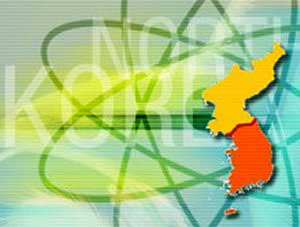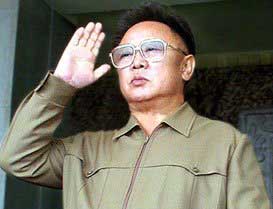| South Korean officials Monday reacted
to the reports with skepticism, saying such radio reports are usually followed
up with an official statement and as yet no such statement has been issued.
Pyongyang observers are now waiting to
see if the report is a deliberate tactic by the North, or simply a mistake
by the state broadcaster.
Yonhap said the language -- which appeared
to go further than Pyongyang's previous claims to "be entitled to have
nuclear weapons" -- may have been deliberately misleading.
Analysts say Pyongyang could have deliberately
broadcast this message -- whether it is true or not --in an attempt to
gauge the extent of international reaction to such news .
U.S. administration officials, including
Defense Secretary Donald Rumsfeld, have said Washington believes Pyongyang
has enough plutonium to make one or two weapons, but it does not know whether
North Korea has enough enriched uranium to make a nuclear weapon.
If the North Koreans were indicating in
the report they have enough enriched uranium for a nuclear weapon, "that
would make it more proximate for us to have to do something about it,"
a senior administration official said.
Last month, Pyongyang admitted it had a
clandestine weapons program, in violation of a 1994 agreement with the
United States.
The agreement called for North Korea to
freeze an earlier nuclear program in exchange for the United States promising
to provide fuel oil and build two safer nuclear reactors.
North Korea has since said the crisis spawned
over the admission could be settled if the United States were to back off
from its "hostile policy" toward the country.
Last week, the international consortium
charged with implementing the 1994 agreement with North Korea agreed to
suspend fuel oil deliveries to the Communist nation because of the nuclear
revelation.
The radio report could be an attempt to
further confuse the nuclear issue in response to the decision to suspend
oil shipments.
North Korea's ruling party newspaper, in
a report with similar content to the Pyongyang Radio broadcast, said the
United States was the one who had broken the pact.
Axis of evil
"The United States is spreading a whopping
lie that the DPRK violates the nuclear non-proliferation treaty and the
DPRK-U.S. agreed framework," said a Rodong Sinmun article, carried by the
state-run Korean Central News Agency.
"The lie is aimed to tarnish the international
prestige and authority of the DPRK and isolate the DPRK on a worldwide
scale. And it is a cunning plot to cover up the criminal nature of the
U.S. posing nuclear threats to the DPRK and divert the public attention
at home and abroad elsewhere."
DPRK is the acronym of the North's official
title, the Democratic People's Republic of Korea.
The communist newspaper said the United
States had branded the North part of an "axis of evil," and listed Pyongyang
as a target for pre-emptive nuclear attack.
"This is a declaration of war, a nuclear
war against the DPRK. Therefore, the U.S. openly violated and destroyed
the DPRK-U.S. agreed framework and nullified the North-South joint declaration
on denuclearization," the Rodong Sinmun said.
North Korea also reiterated terms it set
late in October for addressing U.S. nuclear concerns: a non-aggression
pact and a guarantee of the impoverished state's sovereignty.

|

